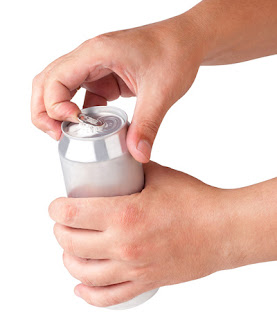 The development of Texture Analysers has opened up a wealth of opportunities for adhesive testing and analysis.
Most recently the ability to replay, freeze-frame and share your product testing data using a Video Capture and Synchronisation System has been introduced. This is a fantastic tool for teaching others about the nature of your product and for those new to the field or, more importantly, to help you gain a frame-by-frame understanding of your product failure.
The development of Texture Analysers has opened up a wealth of opportunities for adhesive testing and analysis.
Most recently the ability to replay, freeze-frame and share your product testing data using a Video Capture and Synchronisation System has been introduced. This is a fantastic tool for teaching others about the nature of your product and for those new to the field or, more importantly, to help you gain a frame-by-frame understanding of your product failure.
 A new rig has been developed to allow manufacturers of food tins and beverage cans to measure the force needed to lift the ring pull and open the container.
A new rig has been developed to allow manufacturers of food tins and beverage cans to measure the force needed to lift the ring pull and open the container.
This new development could signal the end of consumer frustration with trying to open metal packaging that is too stiff, or where the ring pull detaches from the lid.
Understanding and quantifying the force needed to use a ring pull is vital for both packaging manufacturers and their customers to ensure safety, functionality and consumer experience.
Perhaps
the easiest of meat products to recreate is the burger or “pattie” as
it can take a combination of ingredients in bulk and form a structural
mass that attempts to mimic a burger with dense mouthfeel.
The
use of quinoa, brown rice, bulgur and vegetables can be successfully
combined as a fibre-rich patty with the texture of a meat burger.
Texture is the most important sensory trait when evaluating meat products.
According to researchers at the Minister of Agriculture and Agri-Foods Canada: “The four important factors that determine meat tenderness are background toughness (determined antemortem), the toughening phase during rigor onset, the tenderisation phase (during the postmortem aging period), and the denaturation/solubilisation of proteins during cooking.
Creating
families, grouping by common properties: if Mendeleev managed to do it
for the elements, then why not collate the range of Stable Micro Systems
products into the instantly recognisable form of a periodic table?
Here
you will see how all the currently available probes and fixtures that can be attached to
a Texture Analyser can be grouped by test principle: Cutting &
Shearing, Puncture & Penetration, Friction, Extrusion, Tension, Peel
& Adhesion, Compression – plus Special Attachments and Accessories.
 The development of Texture Analysers has opened up a wealth of opportunities for adhesive testing and analysis.
The development of Texture Analysers has opened up a wealth of opportunities for adhesive testing and analysis. 


